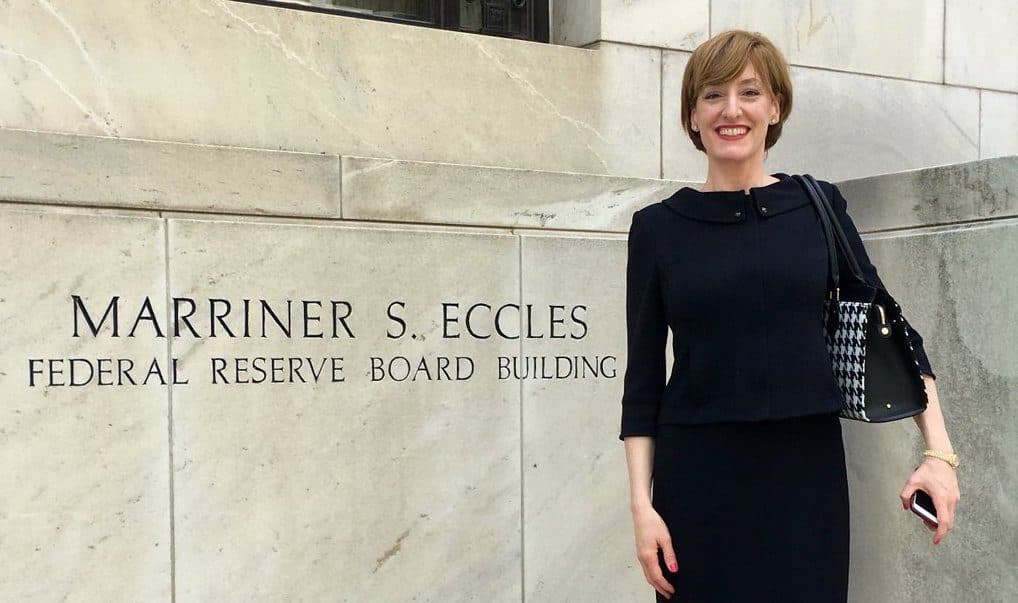Avanti Group CEO: Bitcoin and Traditional Banks Might Not ‘End Well’
While there’s greater push to integrate digital assets into traditional banks, Caitlin Long calls for caution

Caitlin Long, CEO, Avanti; Source: Twitter
- With recent announcements from FIS and Fiserve, banks are working on integrating crypto right into their banking platforms
- Long warns that banks are not “set up” for trading such assets, citing long settlement times
Banks are looking to integrate digital assets, giving customers a place to trade crypto without leaving for external exchanges, but one banking executive said that there’s some work to be done before they can be fully integrated.
“A traditional leveraged bank is now trading bitcoin, which settles in minutes without irreversibility. Banks’ operations and reconciliation processes are not set up for assets with such features (most banks still settle one-per-day). Add leverage to the mix and it may not end well,” Caitlin Long wrote in a Linkedin note.
Spain’s BBVA recently announced that it was launching a bitcoin trading service for private banking clients in Switzerland. But this is only for the bank’s private clients; perhaps more interesting are the tie-ups between custodian and digital asset infrastructure provider NYDIG and FIS as well as Fiserve which sell infrastructure software that powers retail banks’ web portals.
Long explained that this is a conflict between the front and back office. The front office traders are pushing to be able to trade the high volume assets citing client interest, but the back office — where all the plumbing and the pipes are — can’t quite keep up and isn’t ready for an asset that settles in minutes and can’t be reversed.
“Risk officers may not even understand all the plumbing intricacies of connecting crypto with fiat currency payment systems,” she continued in the Linkedin Note. “Back in 2016 I predicted that someday a [Globally systemically important bank] (G-SIB) would fail because it didn’t address all the plumbing problems posed by connecting crypto to fiat payment systems and by definition a G-SIB is leveraged, so mistakes are amplified.”
In a follow-up Forbes article, Long explained that because of the faster settlement of bitcoin to a bank’s traditional accounts, “a bank could build an outsized bitcoin exposure and not even discover this until it’s overnight reconciliation.”
Long wrote that “central institutions can serve as lenders of last resort, that protect against settlement risks in traditional finance, don’t apply to bitcoin.” There is no liquidity for such a lender because it would be too hard to get, most of the bitcoin in circulation is being held away in wallets.
In a recent Blockworks webinar, David Mercer, the CEO of LMAX Group, identified the lack of ‘plumbing’ as a key concern preventing the widespread institutional adoption of digital assets.
“There’s a lot of plumbing in capital markets. And the plumbing either is non-existent in crypto or it’s blocked,” Mercer said. “We’re going to need that B and C in the A-B-C to come into the market.”
Michael Sonnenshein, the CEO of Grayscale Investments, added during the same webinar that “not only is there no plumbing that connects to the legacy financial system, but the pipes aren’t even pointed in the right direction.”
However, Long argued that the infrastructure can be built. In her Forbes post, she said that there’s a safe way to do it which involves completing all transactions in a fenced off subsidiary, avoiding leverage, pre-fund all transactions, and building an IT system to update the settlement and reconciliation process for the irreversible nature of bitcoin.
“Getting this wrong could prove bad not only for the banking system’s solvency over time, but also for bitcoin markets by adding to bitcoin’s already high price volatility,” she concluded.






